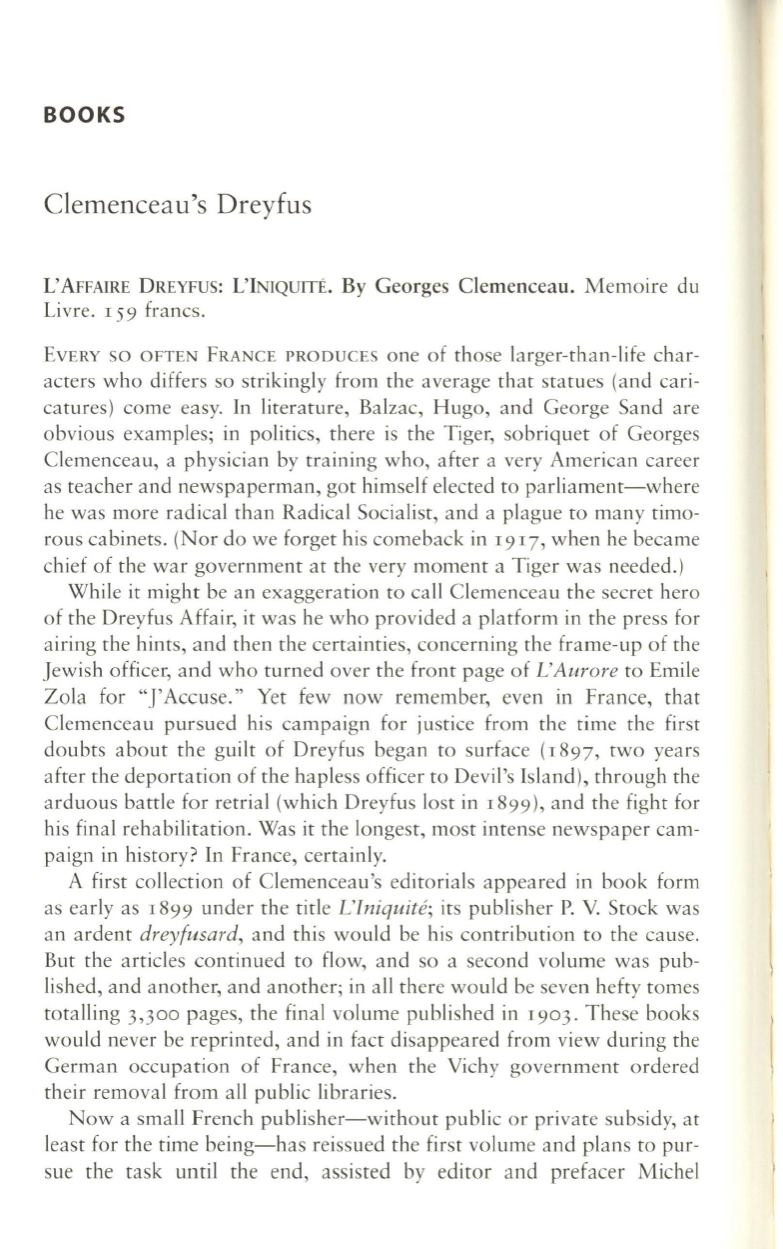
BOOKS
Clemenceau's Dreyfus
L' AFFAIRE DREYFUS: L'INIQUITE. By Georges Clemenceau. Memoire du
Livre.
159
francs.
EVERY SO OFTEN FRANCE PRODUCES one of those larger-than-life char–
acters who differs so strikingly from the average that statues (and cari–
catures) come easy. In literature, Balzac, Hugo, and George Sand are
obvious examples; in politics, there is the Tiger, sobriquet of Georges
Clemenceau, a physician by training who, after a very American career
as teacher and newspaperman, got himself elected to parliament-where
he was more radical than Radical Socialist, and a plague to many timo–
rous cabinets. (Nor do we forget his comeback in
1917,
when he became
chief of the war government at the very moment a Tiger was needed.)
While it might be an exaggeration to call Clemenceau the secret hero
of the Dreyfus Affair, it was he who provided a platform in the press for
airing the hints, and then the certainties, concerning the frame-up of the
Jewish officer, and who turned over the front page of
L'Aurore
to Emile
Zola for
"J'
Accuse." Yet few now remember, even in France, that
Clemenceau pursued his campaign for justice from the time the first
doubts about the guilt of Dreyfus began to surface
(1897,
two years
after the deportation of the hapless officer to Devil's Island), through the
arduous battle for retrial (which Dreyfus lost in
1899),
and the fight for
his final rehabilitation. Was it the longest, most intense newspaper cam–
paign in history? In France, certainly.
A first collection of Clemenceau's editorials appeared in book form
as early as
1899
under the title
L'Iniquite;
its publisher
P.
V.
Stock was
an ardent
dreyfusard,
and this would be his contribution to the cause.
But the articles continued to flow, and so a second volume was pub–
lished, and another, and another; in all there would be seven hefty tomes
totalling
3,300
pages, the final volume published in
1903.
These books
would never be reprinted, and in fact disappeared from view during the
German occupation of France, when the Vichy government ordered
their removal from all public libraries.
Now a small French publisher-without public or private subsidy, at
least for the time being-has reissued the first volume and plans to pur–
sue the task until the end, assisted by editor and prefacer Michel


